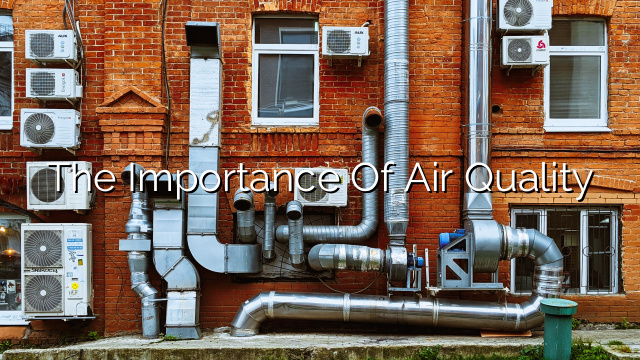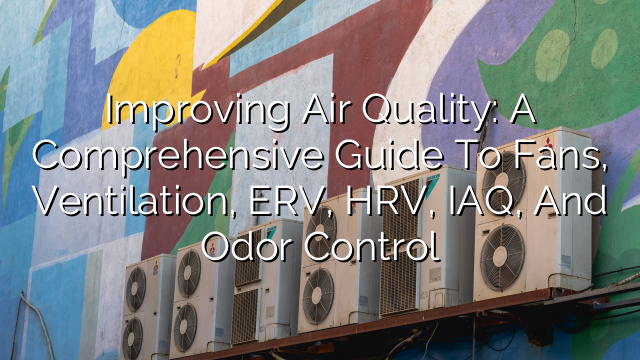Proper ventilation is essential for maintaining good air quality indoors. Opening windows and using exhaust fans helps to remove stale air and bring in fresh air from outside. This helps to dilute pollutants and prevent the buildup of harmful substances in the air. Ventilation is especially important in areas where there may be high levels of pollutants, such as kitchens and bathrooms. Regularly ventilating indoor spaces is a simple yet effective way to improve air quality.
Use Air Purifiers
Air purifiers are devices that help remove pollutants and allergens from the air. They work by circulating the air through filters that trap and remove particles such as dust, pollen, pet dander, and smoke. Using air purifiers can significantly improve air quality, especially for individuals with allergies or respiratory conditions. It is important to choose an air purifier that is appropriate for the size of the room and to regularly clean and replace the filters for optimal performance.
Avoid Smoking Indoors
Cigarette smoke is a significant source of indoor air pollution. It releases harmful chemicals and toxins into the air, which can be particularly harmful to individuals who are present in the same environment. Avoiding smoking indoors and designating outdoor smoking areas can help reduce the exposure to secondhand smoke and improve air quality.
Keep Indoor Plants
Indoor plants not only add beauty to our living spaces but also help improve air quality. Plants naturally remove pollutants from the air through a process called phytoremediation. They absorb carbon dioxide and release oxygen, while also filtering out harmful toxins such as formaldehyde and benzene. Keeping indoor plants can enhance air quality and create a healthier environment.
Limit the Use of Chemicals
Chemicals used in cleaning products, personal care items, and home furnishings can release harmful volatile organic compounds (VOCs) into the air. These VOCs can contribute to poor air quality and may cause respiratory irritation and other health issues. To improve air quality, it is important to limit the use of chemicals and opt for natural or low-VOC alternatives whenever possible. Reading labels and choosing products that are environmentally friendly can make a significant difference in air quality.
Conclusion
Air quality is a critical factor in our overall health and well-being. Poor air quality can have detrimental effects on our physical health, exacerbate respiratory conditions, and even contribute to mental health problems. By paying attention to air quality and taking proactive steps to improve and maintain it, we can protect our health and create a healthier environment for ourselves and future generations. From regularly ventilating indoor spaces to using air purifiers and avoiding smoking indoors, there are various ways to improve air quality. By making these changes and being mindful of the products and chemicals we use, we can breathe cleaner air and experience the many benefits of good air quality.
FAQ
Q: How does poor air quality affect our physical health?
Poor air quality can have detrimental effects on our physical health. When we breathe in polluted air, harmful particles can enter our respiratory system and cause a range of health issues. Short-term exposure to poor air quality can lead to symptoms such as coughing, wheezing, and difficulty breathing. Prolonged exposure can result in more severe respiratory problems such as asthma, bronchitis, and even lung cancer. Additionally, pollutants in the air can exacerbate existing health conditions, making them more challenging to manage.
Q: How does poor air quality affect our mental well-being?
Research has shown that exposure to polluted air can lead to cognitive decline and mental health problems. Poor air quality has been linked to an increased risk of depression, anxiety, and even neurodegenerative disorders such as Alzheimer’s disease. When we breathe in clean air, it helps us feel more alert, focused, and energized. On the other hand, inhaling polluted air can result in fatigue, brain fog, and decreased productivity.
Q: What are the effects of poor air quality on our health?
Poor air quality can have a wide range of negative effects on our health. Some of the most concerning impacts include respiratory problems such as asthma and bronchitis, allergies and asthma attacks, cardiovascular problems such as heart attacks and strokes, and a compromised immune system that makes us more susceptible to infections and illnesses.
Q: How can we improve and maintain good air quality?
There are steps we can take to improve and maintain good air quality. Some of these steps include regularly ventilating indoor spaces, using air purifiers, avoiding smoking indoors, keeping indoor plants, and limiting the use of chemicals. These practices help to remove pollutants, allergens, and harmful substances from the air, creating a healthier environment.














